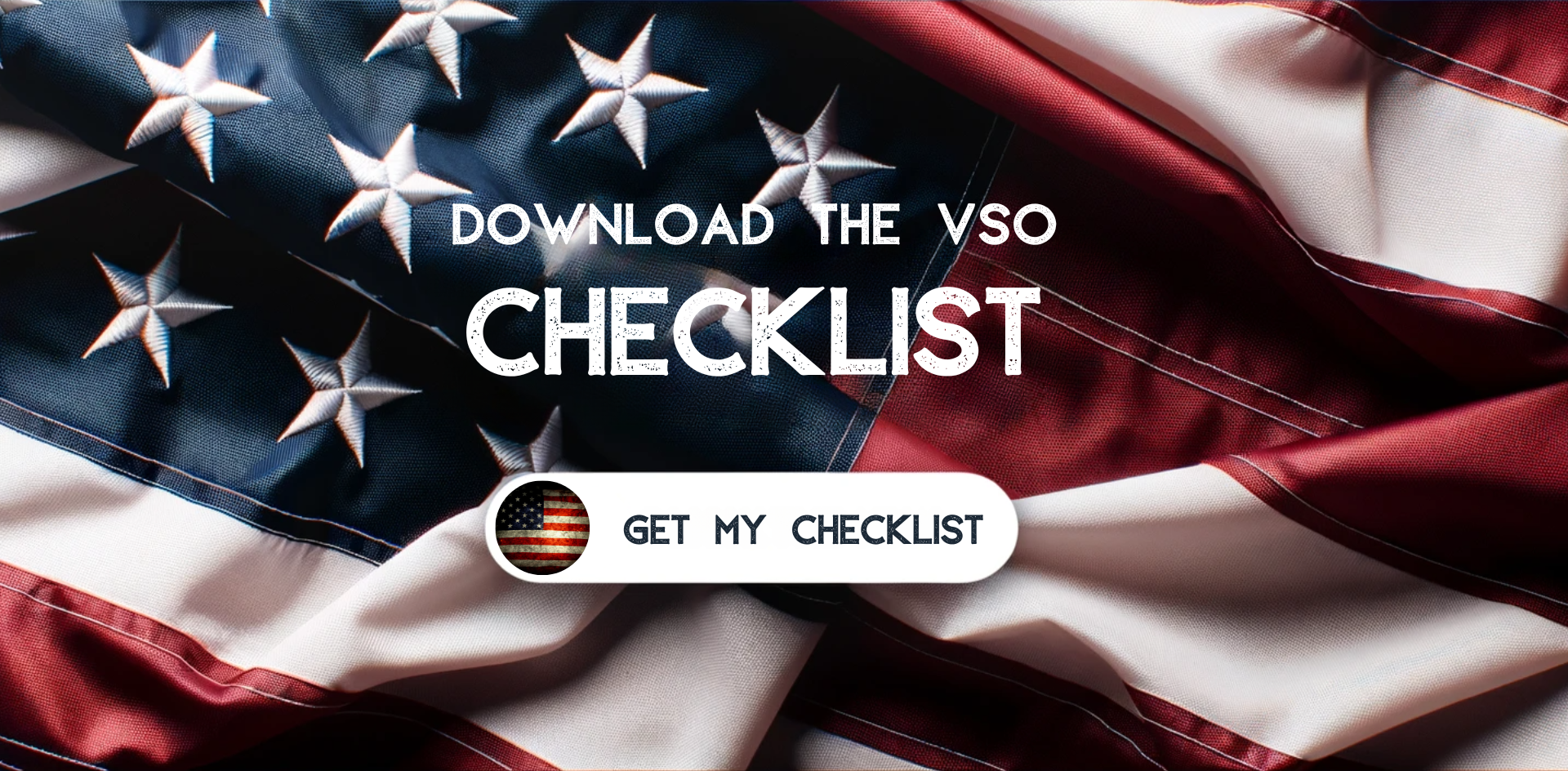Easy Steps to Find the Nearest Veteran Service Office
If you’re a Veteran transitioning out of the military or struggling to find help, Veteran Service Offices (VSOs) are a free resource available to assist you.
A Veteran Service Office is staffed with accredited Veteran Service Officers that are trained to help you navigate the benefits claims process, as well as assist in other areas such as getting education or training, helping your family with service-related challenges, finding mental health care, and other key areas of reintegrating into civilian life.
Finding the nearest Veteran Service Office that can help you is the first thing you need to do.
Let’s break down the key steps you can take to find the nearest VSO. We’ll also cover what to do once you’ve located the best option.
Note that Veteran Service Organizations, offices, and officers are all abbreviated as “VSO”. In this article, we will use “VSO” to refer specifically to the Veteran Service Offices.
1. Searching Through the VA Website
The first step you can take is searching the Department of Veterans Affairs website. The search feature is designed to help you find a representative and can also facilitate a search for an accredited Veteran’s attorney or claims agent. It also has the blank forms available for download including the 21-22 form, which you will fill out and deliver to the Veteran Service Officer that you ultimately select.
2. Contact Lifeline for Vets
Lifeline for Vets is an organization that can also help you locate a Veteran Service Office. It may be easier to find a person to assist you in locating the right Veteran Service Organization for your needs.
Each Veteran Service Organization has a particular focus and their own offices and officers. Certain organizations may be more appropriate for you depending on the nature of your service and ongoing service-related conditions.
Unlike the Department of Veterans Affairs, Lifeline for Vets is a mission driven nonprofit. They may be more empathetic and focused on helping you.
3. Ask Fellow Veterans for Recommendations
While searching through the VA database and nonprofits such as lifeline for vets can help you find Veteran Service Offices, they are not necessarily a reliable way to screen individual Veteran Service Officers.
Even though all officers should have the same accreditation and training, some may simply be better at their jobs or more empathetic towards your needs.
One of the best ways to find trusted resources is through word of mouth.
Ask fellow Veterans in your community or in online Veterans’ groups about their experiences with local VSOs. They can provide first-hand insight into the services offered, the quality of assistance, and any other relevant details.
4. Utilize Social Media Platforms
Many VSOs have active profiles on social media platforms like Facebook and LinkedIn.
By following or joining Veteran-focused groups, you can easily stay updated on upcoming events, available services, and connect with representatives and officers from various VSOs. Checking social media is another way to gauge how involved and committed a certain office may be.
As mentioned, some offices will inherently provide better services due to the people who work there.
While it is not a be-all end-all assessment, social media activity can provide some insight into whether a certain VSO is worth reaching out to.
What to Do After Finding a VSO
Once you have found a VSO you might want to work with, the next steps are as follows:
1. Verify the Accreditation of Your VSO
You need to verify the accreditation of both the Veteran Service Office that you find as well as the specific officer who you end up connecting with. You can verify your VSO directly through the VA website. This step is especially important if you were referred to your VSO by word-of-mouth or social media.
2. Make a Phone Call or Schedule an Appointment
Once you’ve identified a nearby VSO, reach out to them.
It’s advisable to schedule an appointment in advance to ensure you’ll have dedicated time to discuss your needs and concerns.
Many VSOs can be busy, so avoid waiting till the last minute, especially when it comes two deadlines for filing paperwork. Missing these deadlines can result in further complications when it comes to securing your benefits.
3. Prepare for Your Visit
Once you’ve done all the steps above it’s time to prepare for your visit. This entails gathering all documentation, including medical records, discharge papers, and other relevant paperwork, to ensure a streamlined process once you’re sitting down with your Veteran Service Officer.
Be sure to write down any other questions you have regarding either your claims or general assistance. Some examples are finding a job, getting more education, taking advantage of a VA loan, and accessing the full benefits you are owed on account of your service.
The more ducks you have in a row, the less chance there is of additional hurdles.
When to Seek Legal Counsel
Although VSOs are committed to ensuring you get your benefits, there are situations where they are not well-equipped to assist you.
If your claim has been denied for any number of reasons, it’s time to seek professional legal help.
Veterans’ lawyers have specialized training when it comes to navigating the bureaucracy, legal hassles, and roadblocks.
If you’ve had any such struggle securing your benefits, you can reach out to the Veterans Law Group today for a free consultation. You won’t pay anything until after your claim is secured.



